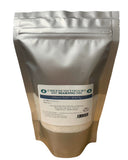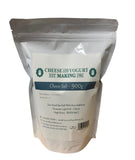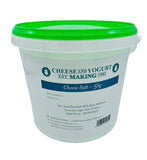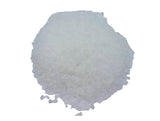Cheese Salt for Cheesemaking
This PURE ORGANIC SEA-SALT that is guaranteed free from any additives whatsoever. It has been produced by a sustainable method, is over 99.8% pure and has a superb flavour that is free from any bitter after-taste.
The use of Salt is an integral part of the cheesemaker's art so it is vital to ensure the correct type of Salt is selected for this job. Some of the reasons for using Salt are as follows:-
- The addition of Salt ensures that whey is rapidly expelled from the curd
- The bacteria that were added at the start of the cheesemaking process will cause the cheese to rapidly spoil if it is left unchecked: Salt added to the dry curd will stop this development.
- Salt also is a key component in the flavour of the cheese as well as performing a vital role in the maturing of the curds - from a bland, raw starting material to a delicious end product.
- Salt also inhibits the growth of undesirable bacteria so acts as a preservative: this is vital for hard cheeses with a long shelf life such as Cheddar, Wensleydale etc.
However, Iodised salt is not suitable because the iodine inhibits all the lactic bacteria that you actually want in the cheese for the ageing process. Similarly, the Salt should not contain magnesium oxide or sodium ferrocyanide or any other anti-caking agents that are found in virtually all types of regular table salt.
The Salt is formed in grains that measure between 0.8 and 2.0mm - the perfect size for cheesemaking where a moderately slow dissolution rate is required. It is also great for making brine solutions too.
Presented in 250g, 900g pouches and 5Kg bucket.
For sack prices, please enquire.
Allergens List for Salt
|
Allergen |
Yes |
No |
|
Cereals Containing Gluten |
X |
|
|
Eggs |
X |
|
|
Fish |
X |
|
|
Peanuts |
X |
|
|
Soybeans |
X |
|
|
Milk (Including Lactose) |
X |
|
|
Nuts |
X |
|
|
Celery |
X |
|
|
Mustard |
X |
|
|
Sesame |
X |
|
|
Sulphur Dioxide and Sulphites (10mg / kg) |
X |
|
|
Crustaceans And Shellfish |
X |
|
|
Molluscs |
X |
|
|
Lupins |
X |













